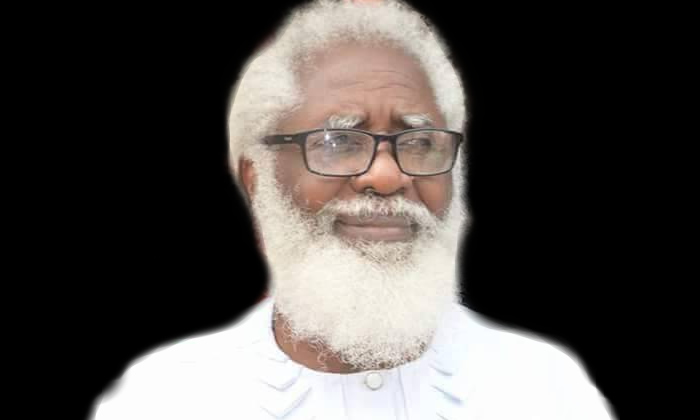A muted jubilation over the announcement that the dichotomy between HND and BSc in the civil service has been removed, indicates that there are still hurdles to cross in the age-old discrimination against HND holders, writes Head, Education Desk, Iyabo Lawal
Bola Iyatse looked on with dreamy eyes as the news filtered through. Ingenuous and hard working, his albatross in Nigeria’s civil service is that he graduated from a polytechnic where he earned a higher national diploma. In knowledge and practice, he has always outshone his colleagues who are university graduates.
But over the years, those ones have climbed the civil service ladder more quickly than Iyatse. For the former, the sky is their limit; for Iyatse, he couldn’t reach beyond the ceiling until recently when the Federal Government announced that it had removed the dichotomy that existed between Higher National Diploma (HND) holders and Bachelor of Science (BSc) holders.
“At last!” he sighed, punching the air. “Congrats,” said a colleague in his office. It was a battle well won – and which has left not a few worn out over the decades.
The practice in the civil service was that while entry level graduate with BSc started on salary grade level eight, his HND counterpart had to go a level lower; in security service, a BSc holder was a commissioned officer, while an HND holder was non-commissioned; an HND graduate was not expected to go higher than GL 12, while a BSc graduate has no limit.
A year ago, specifically July, 2016, the Federal Government had expressed its intention to end the issue of dichotomy between HND and BSc holders – when the Minister of Education, Adamu Adamu, spoke at the 32nd combined convocation and diamond jubilee celebration of The Kaduna, Polytechnic.
That same year in August, the minister affirmed the readiness of the President Muhammadu Buhari administration to address the issue once and for all.
But by December 2016, the Senior Staff Association of Nigeria Polytechnics (SSANIP) issued a three-week ultimatum to the Federal Government to implement the White Paper on the abolition of HND/BSC dichotomy.
Speaking through its national publicity secretary, Adebanjo Ogunsipe, SSANIP said FG’s failure to address the issue might result in an indefinite strike.
To the association, the years of endless waiting for the government to walk the talk had ended.
SSANIP also wanted Buhari’s government to adequately fund polytechnics and called for the release of the outcome of the National Economic Empowerment Development and Strategy (NEEDS) Assessment Committee’s report and to make funds available for the immediate implementation of the recommendations as contained in the report.
It also stressed the need for the government to constitute governing councils for all federal polytechnics, pointing out that the smooth running of the institutions was hampered by bureaucratic bottlenecks involved in the process of securing approvals from the education minister.
A little spark of light shone through the tunnel on April 10, when –not the ministry of education – the Nigeria Customs Service announced it had removed the dichotomy between HND and BSc.
Abolishing the HND-BSc dichotomy in the ranking of personnel in Nigeria’s public service has been a subject of constant demand, particularly from Academic Staff Union of Polytechnics (ASUP)
The Comptroller-General of the service, Hameed Ali, made the announcement through a statement signed by the NCS spokesperson, Joseph Attah.
The statement read in part, “As part of the ongoing reforms in line with circular Ref: HCSF/EPO/EIR/CND/100/ST/98 of September 8, 2016 from the Head of Service of the Federation and the approval of government since April 1992 for Nigeria Customs Service to align with the Nigeria Police Force rank structure, the CGC approved the removal of dichotomy against holders of Higher National Diploma from Bachelors Degree in the Service.” Ali, therefore, directed immediate alignment of rank structure of the service with that of the police. Consequently, officers in the Inspectorate cadre on salary grade level 08 and above are to align with the appropriate rank in the Superintendent Cadre.
He added that HND holders on level seven in the service were automatically moved to level eight, noting that a supplementary budget will be made for their salary arrears.
“This is expected to boost the morale of officers and eliminate confusion in the seniority of officers,” the NCS boss had said.
A day after that statement, a bill seeking to end the age-long dichotomy passed second reading in the House of Representatives.
The bill, sponsored by Ali Isa from Gombe State and Edward Pwajok from Plateau State, was meant to end the discrimination against polytechnic graduates and remove the ceiling placed on HND holders, especially those in the public service.
Speaking on the bill, Isa said, “It will enable HND holders to attain the highest level in their career both in the public and private sectors and make their certificates respected outside Nigeria.”
On his part, Pwajok noted that there was no justification for the dichotomy that had existed between BSc and HND holders.
But a lawmaker, Diri Douye from Bayelsa State, had argued, “The HND curriculum is drawn differently from degree curriculum. We should look at policy differentials rather than legislative. We actually cannot sit down here and legislate on this.
As the debate was raging on the floor of the House, the Amalgamated Union of Public Corporations Civil Service Technical and Recreational Services Employees (AUPCTRE) threw its weight behind the National Council of Establishment for removing the dichotomy between HND and BSc.
The council recently voted in favour of the removal of the dichotomy.
The AUPCTRE urged the Office of the Head of Civil Service of the Federation to immediately release the enabling circular without further delay, saying this would ensure the commencement of the implementation and enable HND and BSc holders to receive same treatment and ratings.
By July this year, the Federal Government had abolished the dichotomy between BSc and HND holders in the paramilitary services.
Permanent Secretary in the Ministry of Interior, Abubakar Magaji, had announced.
“The Civil Defence, Fire, Immigration and Prisons Board (CDFIPB), at the end of its meeting held on July 11, 2017, under the chairmanship of the Minister of Interior, Lt Gen. (rtd.) Abdulrahman Dambazau approved the regularisation of the dichotomy between holders of university degree and Higher National Diploma in all the Services.
“To this end, the board directed that all officers with HND be upgraded to COMPASS 08, which is the salary grade level for holders of degree certificates at entry point. While the nomenclature for the HND holders will start with the rank of senior inspector, the degree holders are with the rank of assistant superintendent II,” he said.
Prior to that announcement, in June, the Senate had a heated debate on the qualification of the person who should man the Federal Roads Authority.
The argument had come up during the consideration of the report of the Committee on Works – the bill set out to repeal Federal Roads Maintenance Agency Act 2017 and to re-enact Federal Roads Authority Bill 2017. The bill recommended BSc or HND certificate as equivalent with COREN membership as compulsory qualification for headship of the proposed agency.
“This is not in line with our tradition in passing bills. We have graduates for both HND and university. The issue of HND and university dichotomy had always generated heated issues, which have held back the progress of this nation. It has been lingering. HND is equivalent to a degree. This matter is not in line with our constitution, which says that any law passed that is not in tandem with our constitution is null and void. We must not be shut down,” Senator Kabir Marafa had argued.
However, some scholars have weighed in on the desirability or otherwise of removing the dichotomy between BSc and HND.
According to the national president, Academic Staff Union of Universities (ASUU), Prof Biodun Ogunyemi, comparing HND with BSC holders is like equating doctors and nurses, who though work together in the same hospital environment don’t perform the same duties.
Ogunyemi clarified that polytechnic and university education are designed to achieve different goals hence should not be placed at par. “Polytechnic education is to address middle level manpower needs of the country while university education on the other hand is tailored towards high level manpower needs. Besides, the curriculum content and mode of evaluation are not the same. You cannot compare things that are not similar and by law, equalise them. The curriculum, objectives and output cannot be the same.
“Rather than fanning the ember of competition, we should work towards promoting ways of making them complement each other for the development of the country and harness their potentials for national development. To put them at par, they must be subjected to the same curricular and training.”
But the chairman, Academic Staff Union of Polytechnic (ASUP), Usman Dutse while applauding the move urged the government to be consistent, noting that similar efforts by former presidents Olusegun Obasanjo and Goodluck Jonathan were frustrated by some unscrupulous persons.
An elated Dutse maintained that if the federal government is serious about diversifying the economy, it must give priority attention to technical education and motivate the students.
He said, “The discrimination against polytechnic education has discouraged candidates from applying to these institutions, that is why you see every year, about 1.5m candidates apply to the universities which hardly admits 500,000 while you hardly get 50,000 applications to the polytechnics. A lot of candidates were denied access to polytechnic education because of fear of discrimination, at least if that is removed, it can allay people’s fears and encourage prospective applicants to go to polytechnics.”
The removal of the dichotomy no doubt has come to stay following a long and hard-fought battle, nevertheless, it is expected that the discrimination against HND holders will likely continue for a long time to come in the private sector and even in the public sector as regards promotions.
Experts noted that old habits like discrimination against HND holders, though with an official pronouncement against it, may die-hard.
In the meantime, every HND graduate can heave a sigh of relief and brace up, for further battles likely lie ahead.






